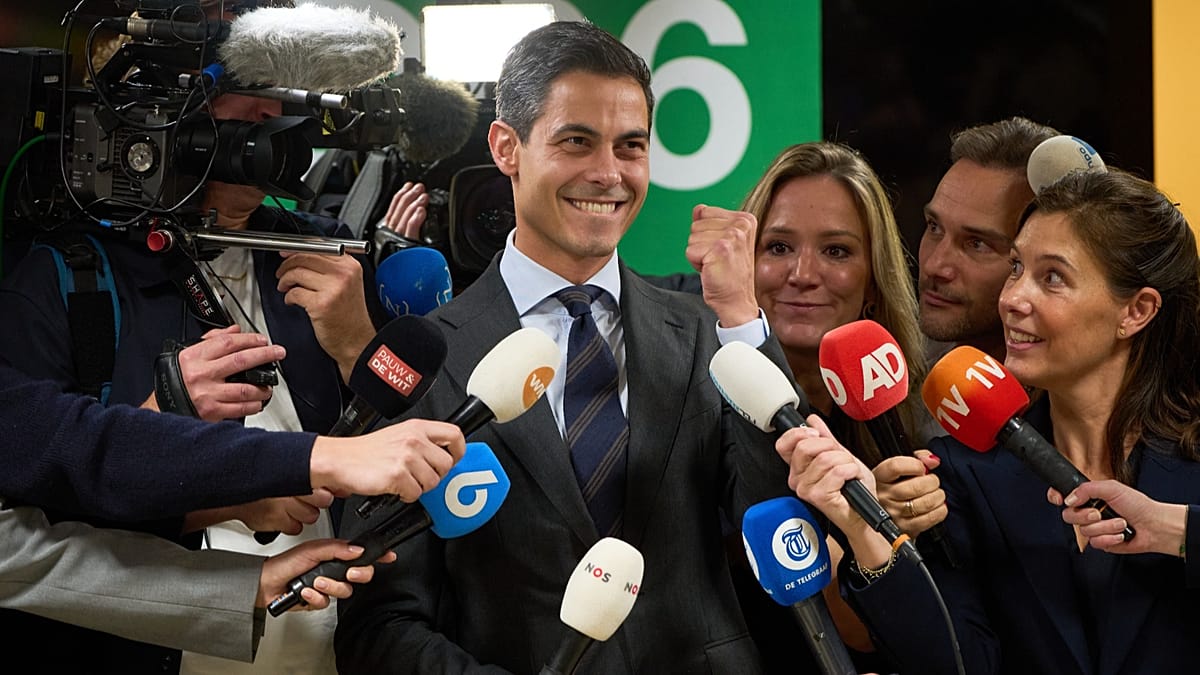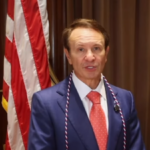Release date
•updated
The centrist liberal D66 has officially defeated the far-right Freedom Party (PVV), becoming the biggest winner in this week’s hotly contested parliamentary election race.
Almost all votes have been counted and Dutch news agency ANP has announced that Geert Wilders’ PVV no longer has a chance of overtaking Rob Jetten’s D66.
The remaining votes came from only one municipality, Venrau, whose counting was delayed due to a fire at the town hall. Postal ballots from overseas voters also remain and are expected to be released by Monday. The latest tally shows D66 leading by 15,155 votes.
D66 (short for Democratic Party 66, also named after the party’s founding year in 1966) increased significantly from just nine seats to 26.
According to ANP, which compiles results from all municipalities in the Netherlands, there is a possibility that D66 will win the remaining seats, bringing the total number of MPs to 27.
Their victory means they will take the first initiative in forming a coalition government, with Mr Jetten seen as the leading candidate for prime minister.
Who is Rob Jetten? What does D66 stand for?
The Liberal Centrist Party was last in power during the final term of former Prime Minister Mark Rutte, who was ousted in 2023 amid the defection crisis.
Jetten himself served as climate and energy policy minister in Rutte’s last coalition government until 2024.
Mr Jetten campaigned passionately for a return to “progressive” politics, focusing on green energy to lower energy costs, building cities to address the housing crisis and reducing strain on the health care system by prioritizing disease prevention.
On the housing issue, the centrist politician said he wanted to build 10 new towns and said 100,000 new homes could be completed a year by eliminating bureaucracy.
Meanwhile, on immigration, Mr Jetten promised to tackle illegal immigration by spending more on integration programs and allowing asylum seekers from outside the EU.
How does Jetten want to govern?
Jetten said the government’s policy is to ensure that people fleeing war and violence can participate in Dutch society by learning the language. He also promised to “pull rotten apples” from the system and deport them.
The D66 leader also successfully targeted members of Wilders’ party, who left the coalition government last June over differences on immigration, leading to the government’s overthrow. Mr Jetten accused his far-right opponents of “hijacking” the Dutch identity and “sowing the seeds of division”.
Jetten said Wednesday night that he wants to join a coalition with a “broad political centrist.” It would show cooperation between the left-wing GL-PvdA, the centrist CDA and the more conservative VVD.
Meanwhile, the VVD has expressed its distaste for the governance of GL-PvdA’s Frans Timmermans. It remains unclear whether that position will change after Timmermans resigned following a weaker-than-expected exit poll on Wednesday.
A D66 victory would also further isolate Wilders and limit his chances of governing. Most political parties, including D66, reject PVV rule.








